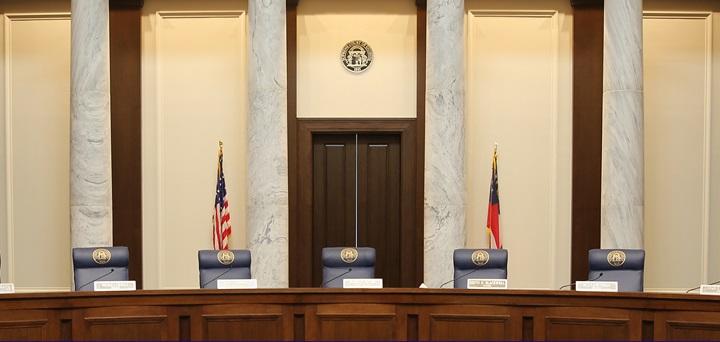
Section Branding
Header Content
Georgia Supreme Court upholds state Capitol arrests, tax on strip clubs
Primary Content

ATLANTA — The Georgia Supreme Court issued two rulings Thursday that upheld the arrests of two Democratic state lawmakers for protesting inside the state Capitol and declared constitutional a state tax levied on adult entertainment establishments.
In the first case, state Rep. Park Cannon of Atlanta and then-state Sen. Nikema Williams of Atlanta — now a member of Congress — were arrested several years ago in separate incidents.
The two neither intended to disrupt the General Assembly nor actually caused any disruptions, Atlanta civil rights lawyer Gerald Weber told the state Supreme Court during oral arguments last May. The lawmakers also argued the state law at issue in the two cases violates the Georgia Constitution’s free-speech protections.
But in Thursday’s unanimous ruling, Justice John Ellington upheld the law.
“These provisions do not prohibit a substantial amount of protected speech relative to their plainly legitimate sweep of prohibiting conduct likely to prevent or disrupt legislative business,” Ellington wrote.
However, six other justices wrote in a concurring opinion that the law is far from perfect.
“(T)he state should not confuse this limited victory with a clean bill of health for the statute,” Presiding Justice Nels S.D. Peterson wrote. “The statute is seriously flawed. Those charged with its enforcement should take care to avoid those flaws, and the General Assembly should seriously consider revising it.”
In the second case, the Georgia Association of Club Executives argued the state’s 1% tax on strip clubs aimed at raising money to combat child sex trafficking unfairly punishes owners of businesses that aren’t responsible for those crimes because minors aren’t allowed in the clubs either as dancers or customers.
Peterson wrote the majority opinion in the decision upholding the law.
“Georgia local governments have often imposed total bans on adult entertainment establishments offering the combination of nude dancing and serving alcohol,” he wrote. “In this case, the state stopped short of a total ban, imposing a 1% tax on gross revenue on adult entertainment establishments that choose to offer the combination of nude dancing and serving alcohol.
“This tax is significantly less burdensome than similar taxes upheld by other courts. And it can be avoided entirely by not serving alcohol or not performing substantially nude.”

